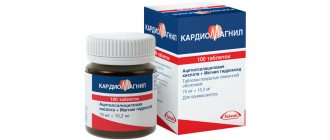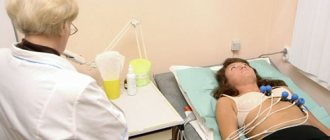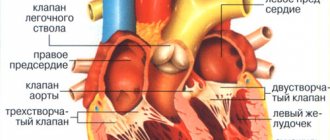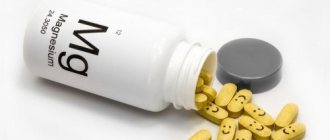Many people who were prescribed Aspirin Cardio are interested in whether it can be replaced with regular aspirin, and whether there is a difference between them. It is worth noting that such a remedy has been known to mankind for a long time. It is used as an antipyretic, to relieve pain, and has an antiaggregation effect.
You need to understand that Aspirin Cardio is not fundamentally different from its predecessor. The difference is in the dosage, it is 4 times weaker, but this dose is enough to solve a variety of problems without harm to health. Demonstrates a positive effect on blood vessels and on the heart itself, preventing the formation of blood clots. And this special cardiac aspirin is much more useful for maintaining heart health. The harm from it is less than from a simple one.
Release form and pharmacological action
Produced in small tablets. The tablets are coated in the form of a special film that dissolves only in the intestines, which significantly reduces the risk of developing gastritis and ulcers. The main active ingredient is acetylsalicylic acid. Its dosage is 100 mg and 300 mg. The tablets also contain excipients.
Enzymes lead to the fact that the main component is converted into salicylic acid. The medication has an anti-inflammatory effect, relieves fever, relieves pain, helps with colds, joint pain, and heart disease. In recent years, this effective remedy has often been prescribed not only to prevent blood clots, but also as a preventative measure for certain types of cancer. As you know, cancer cells are surrounded by platelets, and they, traveling through the blood, are invisible to the protective cells. But aspirin removes platelets from cancer cells. In this case, defenders can recognize these cells and kill them.
The concentration of the active substance in the body is achieved very quickly. But in the case of modern aspirin, this time is lengthened, as is its therapeutic effect. In this case, absorption occurs in the intestines, but not in the stomach. And from this point of view, when choosing between regular Aspirin and Cardio, you should choose the second option.
conclusions
The use of Aspirin Cardio as a preventive and therapeutic agent has certain limitations. Considering the risk of bleeding and disruption of the hemostasis system, the drug should be taken only as prescribed by a doctor - a cardiologist or therapist. Antiplatelet therapy is indicated for patients with cardiovascular and cerebral diseases and a high risk of thrombosis. To prevent the development of adverse reactions or progression of the underlying pathology, before taking acetylsalicylic acid, you should read the instructions and consult with your doctor.
Indications for use
Indications for the use of this drug are:
- risk of stroke;
- the presence of hypertension and the risk of heart attack;
- increased risk of thromboembolism;
- the threat of blood clots in the veins;
- presence of angina pectoris;
- inflammatory diseases in joints and soft tissues;
- after operations;
- suspicion that an acute heart attack has begun;
- the presence of atherosclerosis;
- fever.
Usually for preventive purposes it is prescribed 1 time per day or 2 times. It all depends on the patient’s condition and the presence of various diseases. Before taking the drug, you should definitely consult your doctor. It is the doctor who decides which drug to choose and in what dose it should be used.
You need to understand that such a remedy allows you to very effectively combat blood viscosity and its thickness. Helps in the treatment of hypertension, it reduces the likelihood of heart attack and stroke. Despite the fact that the active component of the two types of aspirin is the same, Aspirin Cardio is more modern and safer. When taking this medication, the walls of the stomach will be protected from the negative effects of acid. A simple analogue does not have any protective shell and dissolves immediately in the stomach, which can lead to various digestive problems and even cause ulcers, gastritis and bleeding. And if you were prescribed Aspirin Cardio, you should not replace it with a cheaper analogue. In our pharmacy you will find various forms of aspirin.
Myths about statins
“Doctor, just don’t prescribe me statins, I won’t take them anyway!”
“The neighbor said that you can’t take statins for more than three months in a row!”
“Why do I need statins! Can’t you see that I have normal cholesterol!”
Every cardiologist has heard these and similar phrases many times during appointments.
Let's figure it out together!
Today, statins (drugs for the treatment and prevention of atherosclerosis) are one of the most studied groups of drugs with a proven ability to reduce cardiovascular morbidity and mortality.
In 2021, statins will celebrate their half-century anniversary!
In 1971, Japanese doctor Akira Endo isolated the first cholesterol synthesis inhibitor from the waste products of penicillin-like fish. This substance, called compactin, became the ancestor of modern statins.
In the mid-90s, statins widely entered clinical practice and were studied in numerous international studies.
Statins have rightfully become the “star hit” of cardiology, as drugs that affect the prognosis, and not just the symptoms!
However, these well-studied and proven effective drugs are perceived by some patients as harmful and unnecessary, and their use is often shrouded in myths and fears.
Let's try to deal with the most common ones:
- Statins have a lot of side effects and are very poorly tolerated.
In fact, side effects while taking statins are 1-3%, which is comparable to the tolerability of placebo. The most serious side effect, rhabdomyolysis (significant damage to muscle tissue), caused 0.15 fatal cases per 1 million prescriptions throughout the history of statin use. For comparison, for every 1 million cases of prescriptions for acetylsalicylic acid, which many take without a doctor’s prescription (cardiomagnyl, thromboass, aspirin-cardio, cardiasc, acecardol, etc.), more than 1000 cases of severe, including fatal, bleeding are registered annually . - Statins are very harmful to the liver and even if you have the slightest problems with the liver and gall bladder, they should not be taken
In fact, the point of pharmacological action of statins is indeed the liver, where the enzyme involved in the synthesis of cholesterol is located. The action of this enzyme is weakened by statins, thus the synthesis of cholesterol and its fractions is reduced.However, the frequency of drug-induced liver damage when taking statins is extremely low, and according to various sources is 2-5%, of which 90-95% is an increase in the level of liver enzymes (ALT, AST), which often does not require discontinuation or even dose reduction.
The hepatotoxicity of paracetamol is 10-15 times higher than the hepatotoxicity of any of the statins, even at the highest doses. There are liver diseases, such as fatty liver disease, fatty hepatosis, in the treatment of which statins are used!
Neither chronic viral hepatitis nor gallstones are contraindications to statins.
- Statins cause cancer, dementia, impotence
In fact, there is no scientific evidence showing even a small risk of such diseases when taking statins.On the contrary, treatment of atherosclerosis is an effective prevention of vascular dementia and erectile dysfunction, especially in patients of older age groups and in high-risk patients
- Statins cause type 2 diabetes
Partly true.When taking statins, the risk of developing diabetes mellitus, especially in patients with baseline risk factors, increases slightly, while statins are a mandatory component of therapy in patients with existing diabetes mellitus, as they significantly reduce the risks of serious cardiovascular diseases, which are especially high in this group of patients .
- Taking statins can be replaced by following a diet.
A diet limited in animal fats is an important component of a healthy diet.However, even the strictest adherence to it cannot reduce plasma cholesterol levels by more than 10-15%. This is due to the fact that only 25% of cholesterol enters the body with food, and the remaining 75% is synthesized in the body, and depends little on the nature of the diet.
- If your cholesterol levels are normal (that is, they fall within the normal range of values indicated on the laboratory form), then, of course, there is no need to take statins.
In fact, indications for taking statins and their target levels can only be determined by a doctor. Laboratory standards are indicated for healthy people. For patients who already have cardiovascular diseases, the norms are different. - If you start taking statins, you won’t get off them.”
In fact, statins do not cause any addictive effect; their withdrawal is not accompanied by any worsening of the condition.However, in fact, only long-term, long-term use of statins makes sense, as soon as it allows all the positive therapeutic effects of the drugs to be fully realized. It is for this same reason that it makes no sense to stop taking statins when cholesterol levels are normalized, since in this case, the effect will be lost when you stop taking them.
- Statins have only one effect - lowering cholesterol.
In fact, statins also have an anti-inflammatory effect, expressed in reducing inflammation in the inner wall of blood vessels, which allows them to prevent the rupture of atherosclerotic plaque, protect the kidneys, retina and brain, and also help in treatment of infectious diseases (there is even a study currently underway on the use of statins in the treatment of a new coronavirus infection) - If statins are so safe and beneficial, then you can start taking them on your own if you have high cholesterol.
In fact, only a doctor can prescribe these drugs taking into account the specific clinical situation of each patient, select a specific drug and determine the dose.In our clinic, we are ready to answer in detail all patients’ questions related to lipid-lowering therapy and select the optimal treatment in each case!
Author of the article
Pavlova Olga Borisovna
Cardiologist, general practitioner.
Work experience: since 1998, 22 years
More details
Comparison of ease of use of Aspirin Cardia and Cardiomagnyl
This includes dose selection taking into account various conditions and frequency of doses. At the same time, it is important not to forget about the release form of the drug; it is also important to take it into account when making an assessment.
The ease of use of Aspirin Cardia is approximately the same as Cardiomagnyl. However, they are not convenient enough to use.
The drug ratings were compiled by experienced pharmacists who studied international research. The report is generated automatically.
Last update date: 2020-12-04 13:44:58
Comparison of side effects of Aspirin Cardia and Cardiomagnyl
Side effects or adverse events are any adverse medical event that occurs in a subject after administration of a drug.
Aspirin Cardia has almost the same adverse events as Cardiomagnyl. They both have few side effects. This implies that the frequency of their occurrence is low, that is, the indicator of how many cases of an undesirable effect of treatment are possible and registered is low. The undesirable effect on the body, the strength of influence and the toxic effect of Aspirin Cardia are similar to Cardiomagnyl: how quickly the body recovers after taking it and whether it recovers at all.
Note
It is necessary to take into account the characteristics of the patient’s health status when prescribing the drug. Taking aspirin can aggravate the symptoms of a number of diseases or become a threatening factor in their development.
For this reason, the doctor always tries to find out the full picture of the patient’s condition, being interested in diseases that are not related to the main issue of treatment.
Situations in which caution is required when taking aspirin:
| Related factors | Side effects of aspirin |
| Gout | Increased uric acid and exacerbation of the disease. |
| Arterial hypertension | If the form is uncontrolled, there is a possible risk of hemorrhagic stroke. |
| Upcoming surgery | It is necessary to discontinue the drug several days in advance, as the risk of severe bleeding increases. |
It is worth remembering that when taking medications with a similar effect - thrombolytics, anticoagulants - aspirin is taken only as directed. Abuse of such drugs leads to blood clotting disorders, which threatens health and life even with mild bleeding.









